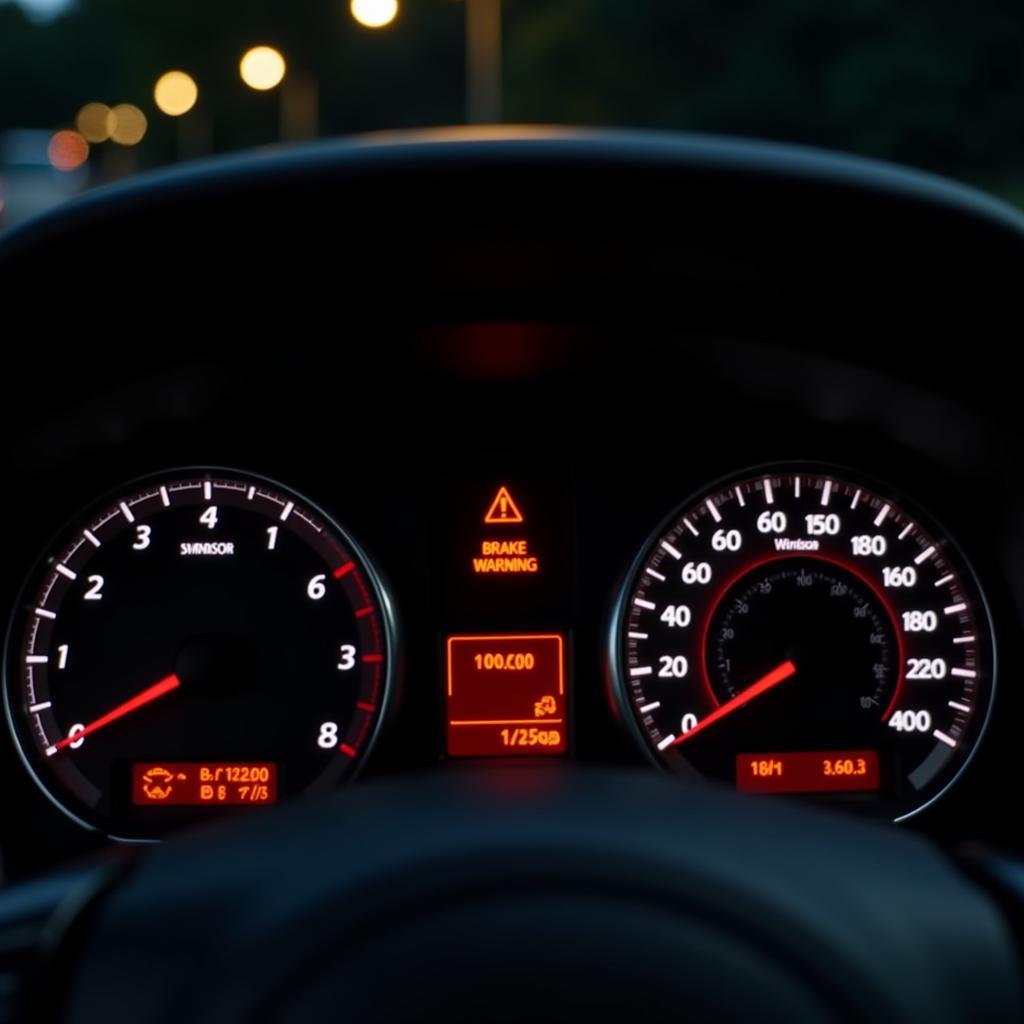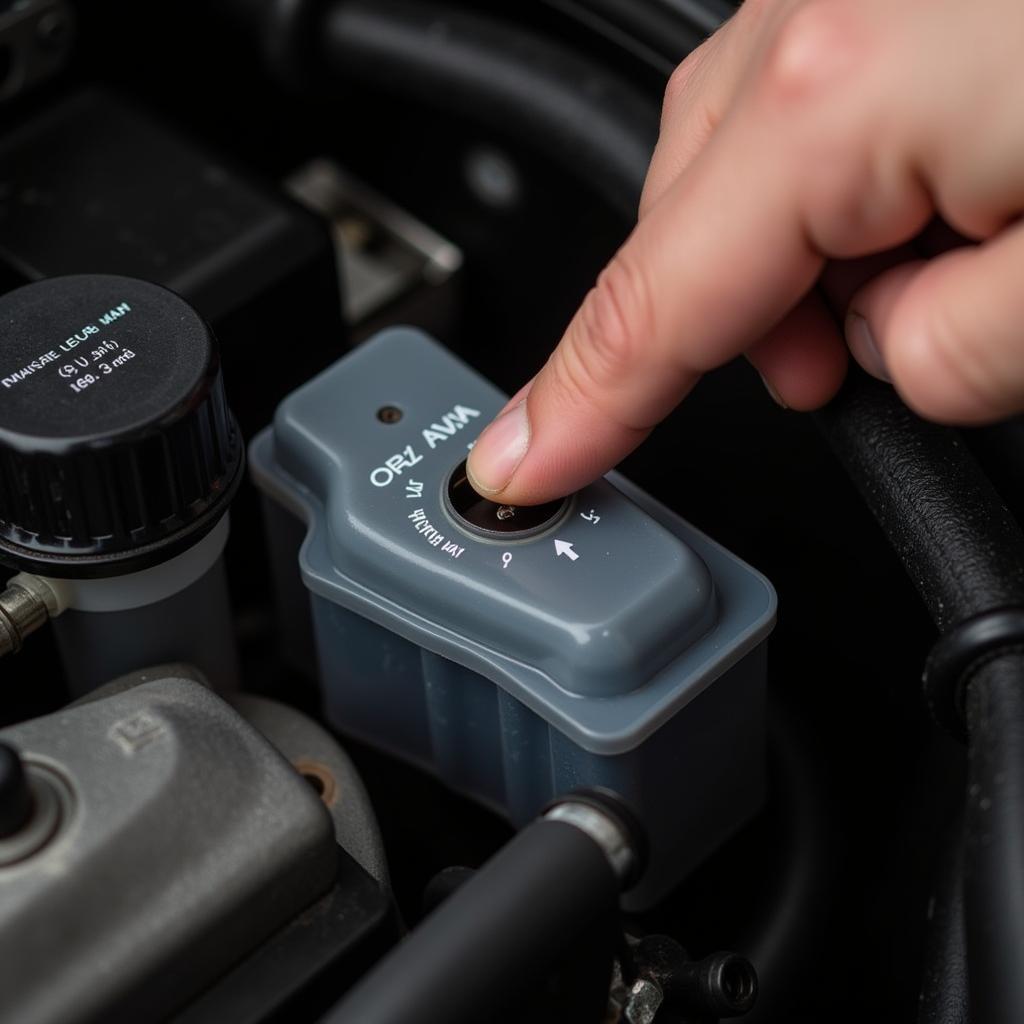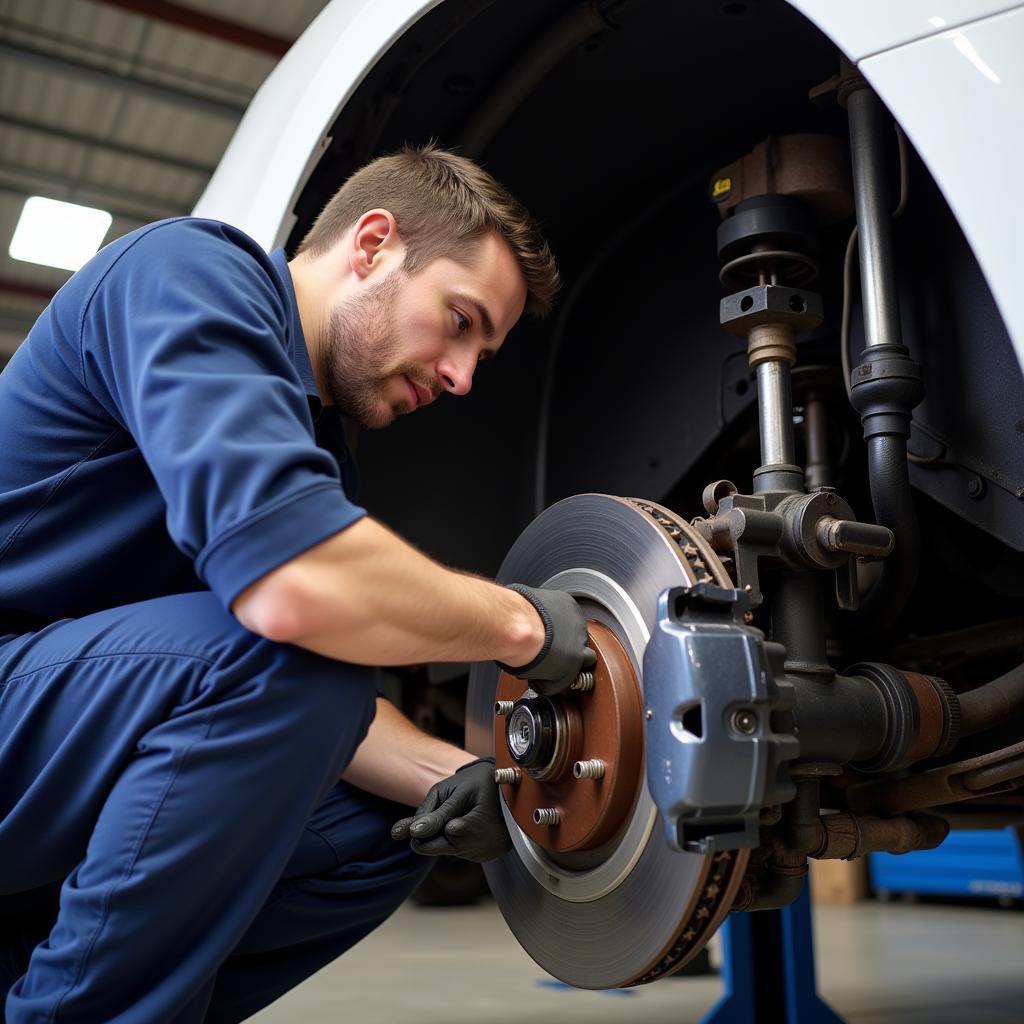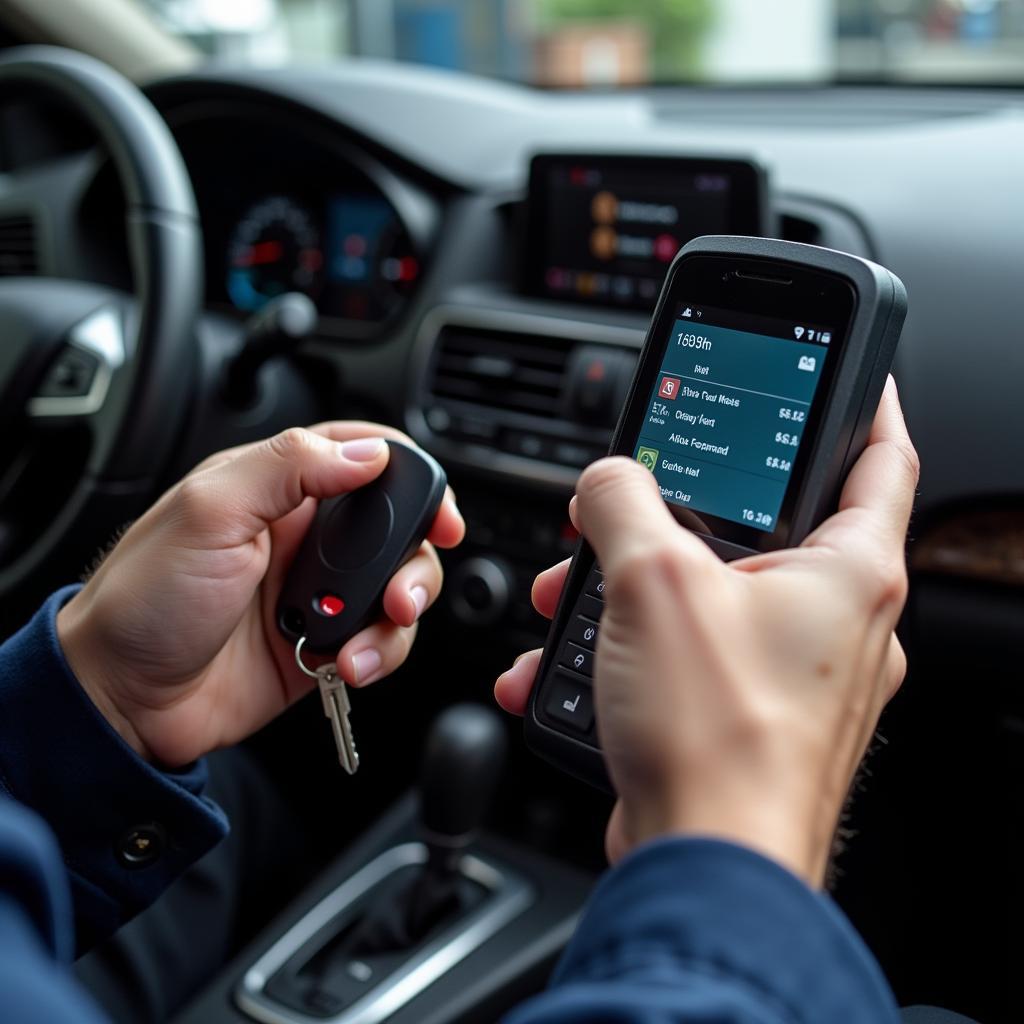If your car brake warning light stays on, it’s a signal that shouldn’t be ignored. This persistent light can indicate a range of issues, from low brake fluid to more serious problems like a malfunctioning ABS system. Understanding the potential causes and solutions is crucial for maintaining your safety on the road.
 Car brake warning light illuminated on the dashboard
Car brake warning light illuminated on the dashboard
This article will provide a comprehensive guide to troubleshooting a persistent brake warning light, helping you diagnose the problem and determine the best course of action. Whether you’re a seasoned DIY mechanic or a novice car owner, this guide will equip you with the knowledge you need to address this important safety concern. We’ll cover common causes, diagnostic steps, and when to seek professional help. For some specific car models, you can check out articles like brake warning light stays on dodge caravan, which offers targeted advice.
Understanding the Brake Warning Light
The brake warning light is designed to alert you to potential issues within your braking system. It can signify several things, and understanding these possibilities is the first step in resolving the problem. One common cause is low brake fluid, often indicating a leak somewhere in the system. Other potential issues include worn brake pads, a faulty parking brake, or problems with the Anti-lock Braking System (ABS).
 Mechanic checking brake fluid level in car
Mechanic checking brake fluid level in car
If your car’s brake warning light remains on, it’s important to address the issue promptly. Driving with a faulty braking system can be extremely dangerous, compromising your ability to stop effectively and increasing the risk of accidents. Ignoring the warning light can also lead to more extensive and costly repairs down the line. You can find more advice on what to do if your car’s brake warning stays on in our dedicated article.
Diagnosing the Problem
Start by checking your brake fluid level. Locate the brake fluid reservoir under the hood and check if the fluid is below the minimum line. If it is, top it off with the correct type of brake fluid as specified in your car’s owner’s manual. However, if the fluid level is consistently low, it suggests a leak that needs professional attention. You might find our article on 2007 dodge caravan brake light warning stay on helpful if you own that specific model.
Next, inspect your brake pads. Worn brake pads are another common culprit for a persistent brake warning light. If you’re comfortable doing so, you can visually inspect the brake pads through the wheel spokes. Look for thin pads or those that appear worn down to the metal backing plate. If your brake pads are excessively worn, they need to be replaced immediately.
Another thing to check is the parking brake. Ensure that the parking brake is fully disengaged. Sometimes, a partially engaged parking brake can trigger the warning light.
If you suspect an issue with the ABS, it’s best to take your car to a qualified mechanic for diagnosis and repair. ABS issues often require specialized diagnostic tools and expertise. For models like the 2006 Ford Focus, you can check out our 2006 ford focus brake warning light guide for specific insights.
When to Seek Professional Help
While some brake warning light issues can be addressed with simple DIY fixes, others require professional intervention. If you’ve checked the brake fluid, brake pads, and parking brake, and the light persists, it’s time to consult a mechanic. This is especially true if you suspect a problem with the ABS. Modern vehicles often rely on sophisticated electronic systems, and diagnosing these issues requires specialized equipment and knowledge. Attempting complex repairs yourself can potentially worsen the problem and create additional safety hazards.
“A persistent brake warning light should never be ignored,” says John Smith, Senior Automotive Technician at Smith Automotive Solutions. “It’s a critical safety system, and any issues should be addressed promptly by a qualified professional if you’re unable to diagnose and fix the problem yourself.”
 Mechanic inspecting car brake system
Mechanic inspecting car brake system
Furthermore, “Regular brake maintenance is key to preventing problems,” adds Sarah Jones, Lead Mechanic at Jones Auto Repair. “Routine inspections and timely replacements of worn components can help avoid more serious issues down the line.” You can also find information regarding the Chevrolet brake warning light in our brake warning light stays on chevrolet article.
Conclusion
A car brake warning light that stays on is a serious issue that demands immediate attention. Understanding the potential causes, following the diagnostic steps outlined above, and seeking professional help when necessary can help ensure your safety on the road. Don’t delay addressing this important warning; your safety and the safety of others depend on a properly functioning braking system.
FAQ
-
What does the brake warning light mean? The brake warning light indicates a potential problem with your braking system, such as low brake fluid, worn brake pads, or a faulty ABS.
-
What should I do if my brake warning light stays on? Check your brake fluid, brake pads, and parking brake. If the light persists, consult a qualified mechanic.
-
Can I drive with the brake warning light on? Driving with a faulty braking system is extremely dangerous. Address the issue immediately to avoid potential accidents.
-
How often should I check my brake fluid? It’s recommended to check your brake fluid level at least once a month.
-
How often should I replace my brake pads? Brake pad replacement intervals vary depending on driving habits and vehicle type. Consult your car’s owner’s manual for recommended replacement schedules.
-
What is ABS, and why is it important? ABS stands for Anti-lock Braking System. It prevents wheel lockup during hard braking, allowing you to maintain steering control.
-
How much does it cost to fix a brake warning light issue? The cost of repairs varies depending on the underlying problem. A simple brake fluid top-off is inexpensive, while more complex ABS repairs can be significantly more costly.

